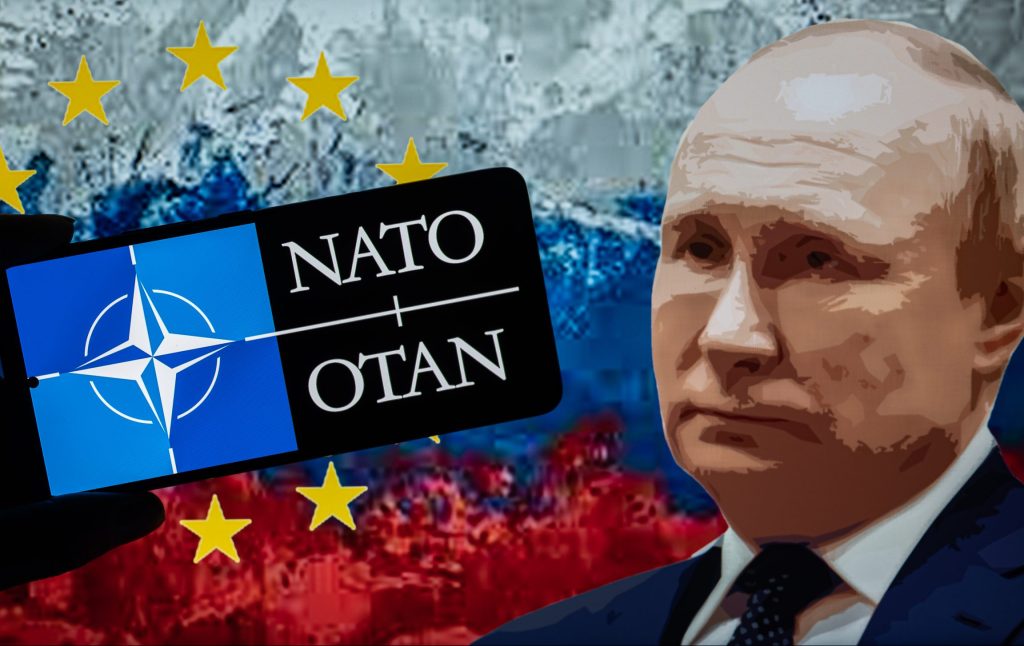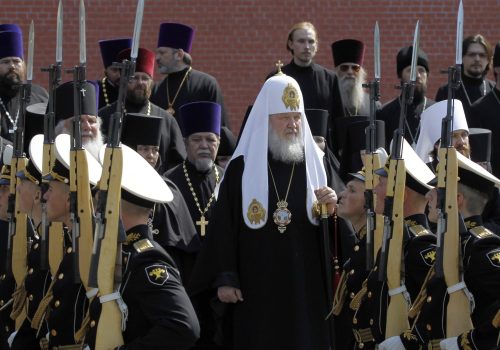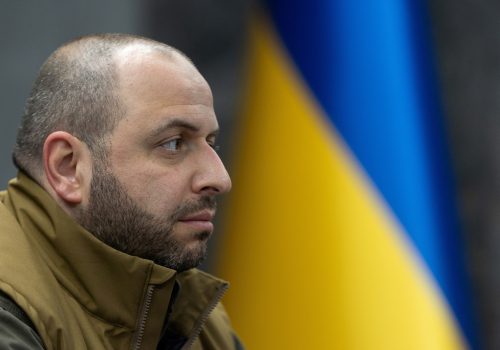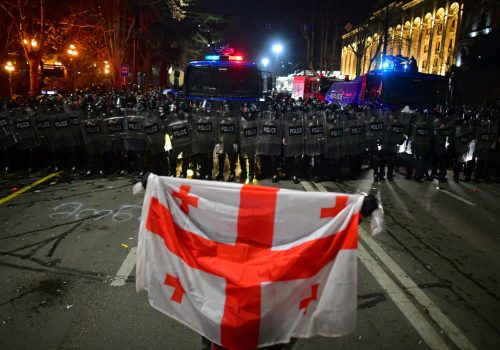Vladimir Putin’s attempts to blame the invasion of Ukraine on NATO are dishonest, according to Norway’s army chief, who argues that the Russian dictator’s own actions prove he does not view the alliance as a genuine security threat.
Speaking after a September 16 meeting of NATO commanders in Oslo, the Norwegian Chief of Defense, General Eirik Kristoffersen, revealed that Russia has dramatically reduced its military presence on the border with NATO member Norway. “Vladimir Putin knows very well that NATO is not a threat against Russia,” commented Kristoffersen. “If he believed we were threatening Russia, he couldn’t have moved all his troops to Ukraine.”
According to Kristoffersen, Russia has now withdrawn approximately 80% of the forces it had previously stationed close to the Norwegian border prior to the full-scale invasion of Ukraine in February 2022. “Putin has taken this risk because he knows NATO is not threatening anyone,” the Scandinavian commander stated.
Speaking alongside Kristoffersen, NATO Military Committee Chair Admiral Rob Bauer noted the similarities between the withdrawal of Russian forces from the Norwegian border and Moscow’s strikingly relaxed reaction to Finnish NATO membership in spring 2023. The Kremlin obviously recognizes that NATO poses no threat to Russia, he observed, “otherwise they would have responded completely differently to the accession of Finland.”
Bauer’s comments highlight the inconsistency of Russia’s apparent indifference to last year’s decision by Finland and Sweden to abandon decades of neutrality and join NATO. Moscow made no effort to oppose or deter the NATO bids of the two Nordic nations, despite the fact that Finnish membership more than doubled Russia’s land border with the alliance, while impending Swedish membership will transform the Baltic Sea into a NATO lake.
In the eleven months leading up Finland’s April 2023 accession, there were no disinformation campaigns, cyber attacks, political assassinations, airspace intrusions, diplomatic threats, or any of the other hybrid warfare tactics Russia is accused of using elsewhere in recent years. Nor were there any menacing military build-ups. On the contrary, Russia downplayed the entire issue and actually pulled the vast majority of its troops and military hardware away from the region. In August 2023, Finnish Foreign Minister Elina Valtonen confirmed that the border area was “pretty empty” of Russian troops. “If we were a threat, they would certainly not have moved their troops away, even in a situation where they are engaged somewhere else,” she commented.
Stay updated
As the world watches the Russian invasion of Ukraine unfold, UkraineAlert delivers the best Atlantic Council expert insight and analysis on Ukraine twice a week directly to your inbox.
Putin’s conspicuous lack of concern over Finnish and Swedish NATO membership makes a complete mockery of his efforts to justify the invasion of Ukraine by brandishing Ukraine’s own far more tenuous ties to the military alliance. While Ukraine has understandably been increasingly eager to join NATO since the onset of Russian aggression in 2014, membership has never looked even vaguely plausible. NATO members rejected the idea of granting Kyiv a membership action plan back in 2008, and have since offered little more than platitudes while consistently downplaying the chances of Ukraine actually joining the alliance. Indeed, on the eve of Russia’s full-scale invasion, German Chancellor Olaf Scholz personally assured Putin that Ukraine would not secure NATO membership “in the next 30 years.”
This has not prevented Putin from framing the full-scale invasion of Ukraine as a justifiable response to NATO’s post-Cold War enlargement into the former Eastern Bloc and engagement with Ukraine. He frequently insists the growth of the alliance since 1991 was in breach of unwritten assurances allegedly offered during the twilight years of the Soviet era, and has positioned his decision to attack Ukraine as a preventative measure to safeguard Russia itself.
These unsubstantiated arguments have proved surprisingly persuasive among international audiences, where they have benefited from strong undercurrents of anti-Western sentiment and widespread opposition to America’s dominant role in world affairs. However, Russia’s decision to voluntarily demilitarize its existing NATO borders is now seriously undermining the credibility of Putin’s efforts to portray the alliance as a security threat to the Russian Federation. Russian resentment over NATO enlargement is sincere enough, but it has little to do with security concerns. Instead, Putin objects to NATO because it prevents Russia from bullying its neighbors.
Eurasia Center events

While the unilateral withdrawal of Russian troops from the country’s shared frontier with the NATO alliance clearly contradicts the Kremlin’s official position, Moscow is unlikely to change its tune any time soon. Complaints about NATO expansion provide the Kremlin with an indispensable smokescreen for what is in reality the most egregious act of international aggression witnessed in Europe since the days of Hitler and Stalin. In other words, the NATO narrative has lent a veneer of legitimacy to an old-fashioned war of colonial conquest.
Putin is far more forthright about his imperial ambitions when addressing domestic Russian audiences. In June 2022, he compared the invasion of Ukraine to the eighteenth century imperial conquests of Russian Czar Peter the Great. Three months later, Putin proclaimed the annexation of four Ukrainian provinces and declared them “forever Russian” during a Kremlin ceremony steeped in the imagery of empire. He has obliged to Russian Orthodox Church to endorse the invasion of Ukraine as a “holy war” in the name of Russian civilization, and has lamented the fall of the Soviet Union as the “disintegration of historical Russia.”
This naked imperialism has been accompanied by genocidal rhetoric dehumanizing Ukrainians and denying Ukraine’s right to exist. Putin has long insisted that Ukrainians are actually Russians (“one people”) and frequently accuses Ukraine of occupying “historically Russian lands.” Days before the invasion, he described Ukraine as “an inalienable part of our own history, culture, and spiritual space.” More recently, Putin has lambasted the “anti-human essence” of the modern Ukrainian state. Meanwhile, he routinely refers to the Ukrainian authorities as “Nazis,” despite the complete absence of any far-right presence within the Ukrainian government. This is not the language of a rational politician responding to legitimate security concerns.
The dramatic reduction in Russia’s military presence along the country’s border with NATO would have been impossible if anyone in the Kremlin seriously believed the alliance posed a credible threat. That is clearly not the case. Putin understands perfectly well that the entire notion of a NATO attack on Russia is absurd, but has cynically exploited the issue to justify his criminal invasion of Ukraine. Any non-Russians who still insist on blaming NATO for the war in Ukraine should ask themselves why Russia’s own leadership evidently doesn’t feel threatened by the alliance.
Peter Dickinson is editor of the Atlantic Council’s UkraineAlert service.
Further reading
The views expressed in UkraineAlert are solely those of the authors and do not necessarily reflect the views of the Atlantic Council, its staff, or its supporters.

The Eurasia Center’s mission is to enhance transatlantic cooperation in promoting stability, democratic values and prosperity in Eurasia, from Eastern Europe and Turkey in the West to the Caucasus, Russia and Central Asia in the East.
Follow us on social media
and support our work
Image: Photo Illustration by Jonathan Raa/NurPhoto




